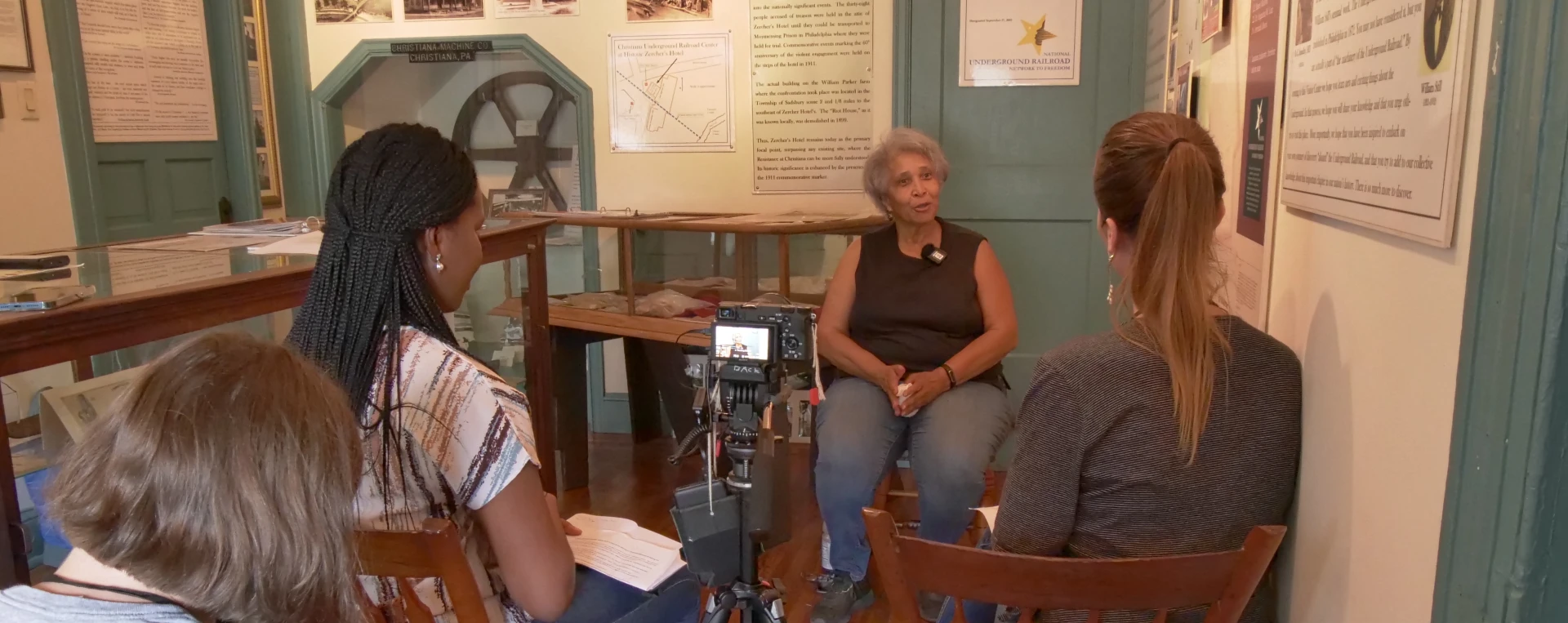Oral history is a field of study and a method of gathering, preserving, and interpreting the voices and memories of people, communities, and participants in past events. Oral history is the oldest type of historical inquiry, stemming from the oral traditions of myriad cultures across the globe, predating even the written word. It is also a modern profession, owing its recent emphasis on preservation to technologies ranging from wax cylinders, to wire recorders, to analog tapes, and ultimately the explosion of pure digital capture devices and formats.
Oral history as a practice refers to both the interview process and the output that emerges from it. In order to gather and preserve meaningful information about the past, oral historians might record interviews focused on narrators’ life histories or topical interviews in which narrators are selected for their knowledge of a particular historical subject or event. The value of oral history lies largely in the way it helps to place people’s experiences within a larger social and historical context, and conversely, to contextualize social and historical events through how people lived them. The interview becomes a record useful for documenting past events, individual or collective experiences, and understanding of the ways that history is constructed.
The hallmark of an oral history interview is a dynamic, collaborative relationship between the interviewer and the narrator. While interviewers pose questions based on research and careful preparation, narrators shape the interview based on what they deem to be relevant, meaningful, or appropriate to share. Despite the fluid nature of the interview process, an oral history is grounded in thoughtful planning and careful follow-through of the agreed-upon process. Once completed, but only if it is legally and ethically feasible to do so, an interview can be placed in an archive so that it can be used beyond its initial purpose pursuant to the written permissions of both the interviewer and narrator. While most oral histories are conducted with a planned outcome for archiving and public dissemination, there are various cultural, political, and social reasons why some interviews or projects may not be. Community stakeholders are often also involved in making a decision on what ultimately to do with interview material.
The Oral History Association (OHA) provides several resources where the public can learn about all facets of the oral history process. OHA also offers a series of publications on oral history scholarship, oral history and the law, and how to conduct subject-specific projects. Ultimately, oral history is all about making contact with people, so we invite you to join us at our annual meeting or regional meet-ups and consider officially joining our organization as an individual or partner member!
